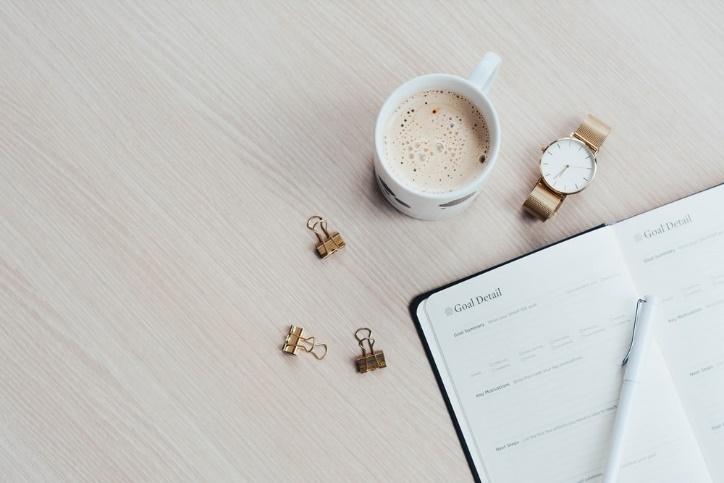Wellbeing

Wellbeing and study tips during lockdown
Lockdowns are tough on everyone, but if you’re at school – then you’re probably having a harder time than most.
We get that, we really do. Unfortunately, we can’t make the pandemic or the restrictions go away, but we can find ways to help you support yourself and make the best of a rubbish situation.
Here’s a few tips and resources to try, keeping your physical and mental health in check, as well as your studies.
Get Physical
It’s important to stay active while you’re at home. You’ll get the dopamine hit to help boost your mood and enhance your ability to learn.
You feel better about yourself in general when you’re being active, and exercise or just being in the outdoors more could also help you to get better sleep (quality and quantity counts), plus your immune system will thank you for it too.
Check out these ideas for keeping active in a lockdown.
Make sure you get enough sleep
We know you’re heard it a million times before and sure sleep can’t fix everything, but it can make a huge difference to the way that you feel.
If you need some more information about why your body and mind need sleep, or tips on how to get good sleep, read this blog.
Fuel your body with the good stuff
If you’re at home (and procrastinating) it can be so easy to head for the cupboard or fridge and raid the snacks. Whilst there’s nothing wrong with that at all – and who doesn’t need the comforts of chocolate or chips sometimes; it’s a great idea to also make sure that you’re giving your body the nutrition it needs too.
You could even make meals for the whole family and earn brownie points…. or dessert.
If you want to snack try going for foods that could be boosting your brain and potentially helping you to get your studies done.
Mental Wellbeing is important too
If you’re feeling anxious, stressed, or even depressed then you’re not in the best mindset to work and these issues could start taking a toll on your physical health too.
Looking after your mental health is just as important as looking after your body, after all your brain is the most powerful organ in your body. If you’re struggling, there’s no shame in that, getting help is the best and bravest move you can make if you aren’t coping too well.
Here’s a few ways that you can help yourself:
Maintain your normal feel-good activities
Do you usually exercise each day, mindfulness activities, listen to podcasts, or make time to sit and read or listen to music each day for your mental health? If you’ve found the key to doing things that make you feel good or better normally, keep it up. It can be hard, but you’ll be glad you made the time and effort afterwards.
If you can’t do your usual sport or hobbies, that’s tough, but you could try switching them up for something new like online work outs or spending the time practising the techniques involved.
Take a hot bath
Liggy Webb recently posted that just taking a hot bath could be enough to prevent burnout.
She cited 3 main health benefits:
- Researchers at Osaka University tracked 30,000 Japanese adults over 29 years and found that daily hot baths are associated with lower blood pressure and our heart’s improved ability to pump blood.
- A hot soak can also raise your metabolism and help you to control your blood sugar levels in the same way walking for 30 minutes can.
- Taking a hot bath 90 minutes before bedtime could help you to get a good night’s sleep. This works by raising your core body temperature to such a height that it then has to fall and a natural drop in body temperature is one of the triggers your body uses to prepare itself for rest and sleep.
Share your worries
Sometimes it’s hard to talk, keeping your concerns all bottled up generally won’t so you any favours though.
“A problem shared is a problem halved”
You’ve probably heard that phrase before, that’s because it’s actually great advice.
Talk to your parents or carers, siblings, friends, teachers or the school counsellor. All of these people have your best interests at heart and will want to listen to your worries and support you.
If you don’t feel like you can talk to anyone close to you, that’s ok too. You can call one of numerous help lines, chat with professionals online, or even make an appointment to chat with your GP if there’s something niggling about you physical or mental wellbeing. They’re all confidential and usually free. If you need help right now, you can always call Lifeline on 13 11 14 or Kids Helpline on 1800 55 1800.
Look up mental health services in your state here or find other ways to get mental health support without talking on the phone.
Study tips to help keep you on track
Not being in school could be making it really hard to study, here’s a few hacks that could help:
Keep a routine
Setting and sticking to specific times for daily rituals such as meals, study, exercise, unplugging, social connection, sleep etc can help you feel in control and “creates pockets of certainty” (Beyond Blue) in your day which can help you to stay grounded.
Getting up at the same time as usual and sticking to your usual routine – including showering, having breakfast, and getting dressed ready to learn, could really help you start your day more motivated and focused.
Set boundaries
Being at home so much of the time with your whole family around can be challenging, with lots of distractions and noise. Why not sit down with your family and work out what will work in order to respect each other’s needs and space. Set a few ground rules for when people need to work and need a little quiet with no interruptions for example. Working together to do this will ensure that everyone gets what they need and things might work a lot more smoothly.
Importantly, set clear times for learning and for when it’s time to step away from the books for the day. Otherwise you might find yourself wasting hours watching day time TV, then burning the midnight oil in order to get your work done, then you’ll be missing out on sleep, potentially feeling stressed out, and possibly not doing your best work. Plus, you don’t want to give your parents something to nag you about do you?
Find your perfect space
If you’re struggling to concentrate on or switch off from studying, perhaps you need to change where you’re working from. Your room might be comfortable but are there too many distractions when you’re trying to work, perhaps it’s too dark or too bright, are you finding it hard to stop working when you should be sleeping? If so, perhaps there’s another spot around the house that’ll work better for you.
Connect with teachers and peers
Feeling isolated when you’re studying could mean that you’re feeling demotivated, confused, frustrated, or even angry.
Joining in with online sessions, organising a chat with your teachers, or even connecting with your classmates in an online chat or group could help you to get back on track, understand your subject matter, or provide you with the help that you need to keep going.
Regular communication, including checking and sending emails means that you won’t miss any important deadlines or other information. Checking in each morning and at the end of your allocated study time is a great place to start.
Just be mindful that you might not always get an immediate response, so having a Plan B is a good idea too. If you’re stuck on a piece of work and can’t get hold of a teacher or classmate to help explain what you need to do next, try moving on to another subject and come back to it later.
Remember to breathe
If you’re feeling overwhelmed, make a conscious effort to take a few big deep breaths, slowly exhale. It’s not a magic cure for everything but it’s a great way to give you a little bit of clarity and calm.
Wait, there’s more
If you’re looking for more resources or haven’t found what you’re looking for in this blog, check out these articles:
Virtual Fitness Challenge Series
Digital Mental Health Resources for Young People
Are you OK? | Looking after your mental health
Stay calm and succeed with these last minute study tips
9 Smart Study Tips to Try Out at High School
Study Playlists to keep you on track
How to Stay Focused While Studying
9 motivational tips for remote learners
7 ways to set yourself up for online learning
There are more resources on our wellbeing and study tips pages too.
Mrs. Alicia Michielsen
Director of Wellbeing and Inclusion











